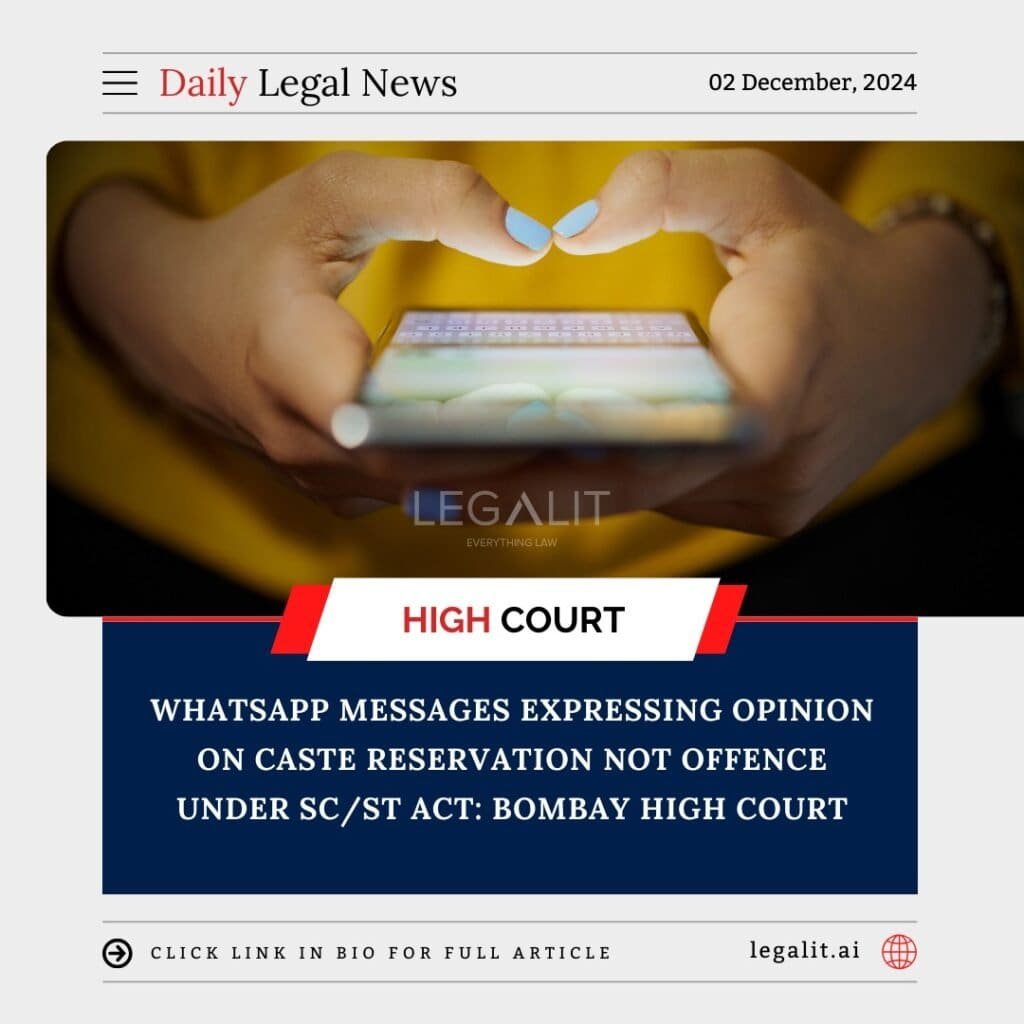
The Bombay High Court has ruled that sharing WhatsApp messages expressing personal opinions on caste-based reservation does not constitute an offence under the SC/ST (Prevention of Atrocities) Act.
Background:
The case stemmed from allegations that certain WhatsApp messages, expressing views on caste reservation, were intended to insult or humiliate members of the Scheduled Castes or Scheduled Tribes. The complainant argued that such messages violated the provisions of the SC/ST Act.
Court’s Ruling:
The Bombay High Court held that mere expression of opinions, even if they criticize or discuss caste reservation, does not meet the criteria for an offence under the SC/ST Act. The court clarified that the messages would need to incite hatred or cause deliberate harm to members of these communities for a case to be made under the Act.
Legal Implications:
The ruling emphasizes the importance of distinguishing between a personal opinion and actions or speech intended to instigate violence or hatred. It also provides clarity on the scope of the SC/ST Act, underscoring that it is not meant to penalize individuals merely for expressing their views.
Conclusion:
The Bombay High Court’s decision protects the right to express opinions on social media, as long as it does not cross the line into hate speech or incitement of violence against any community.